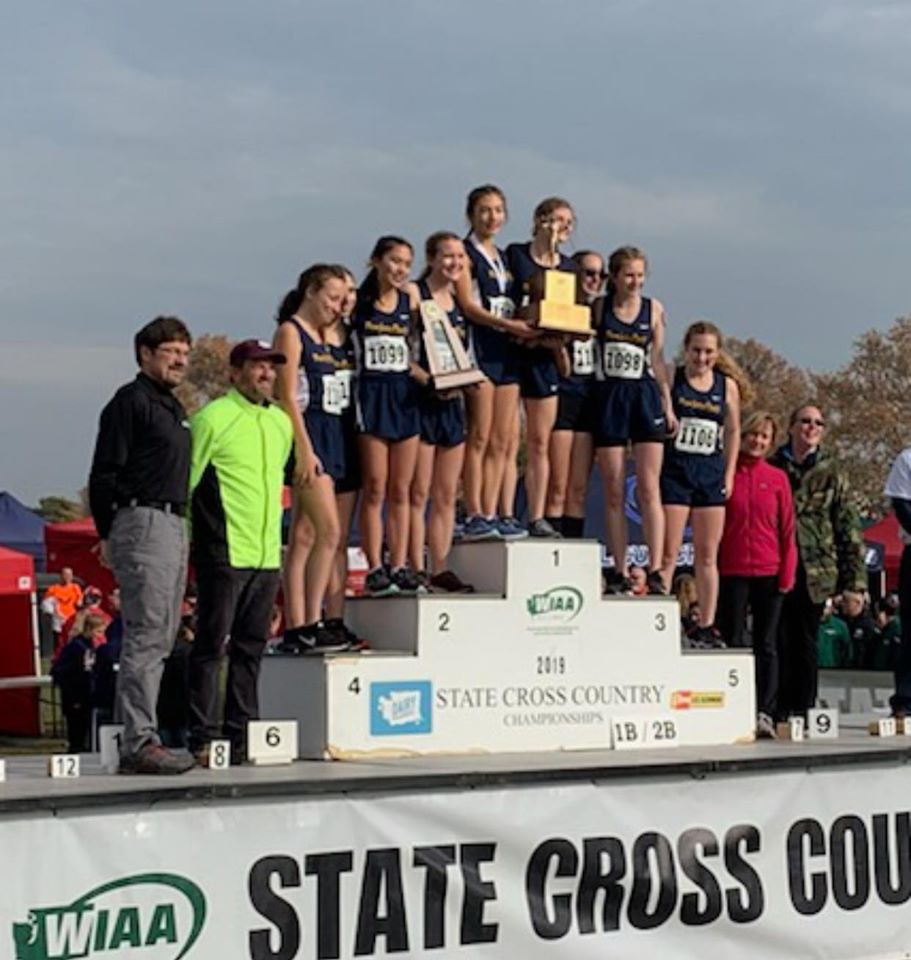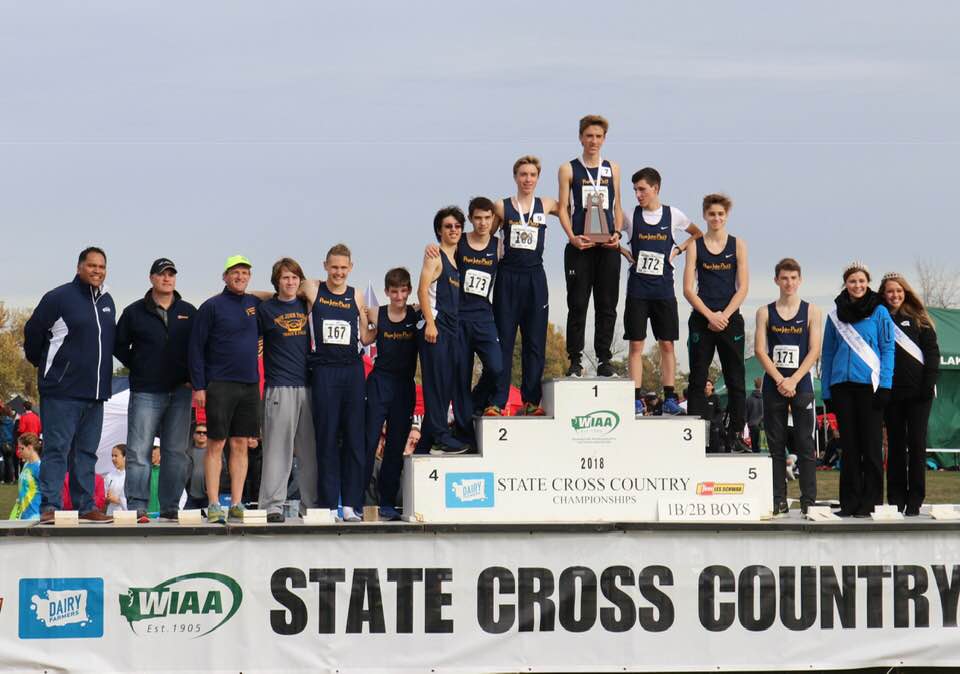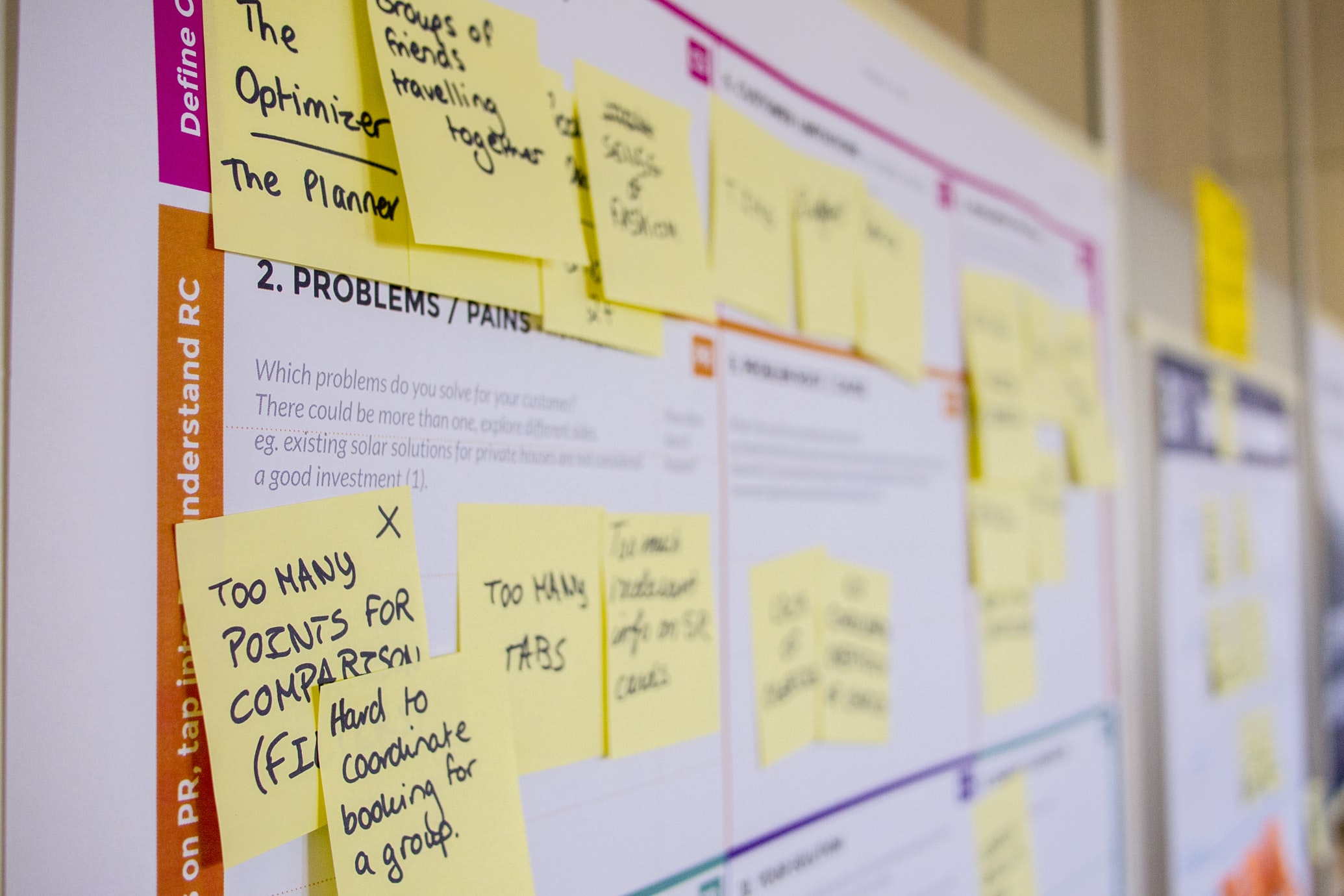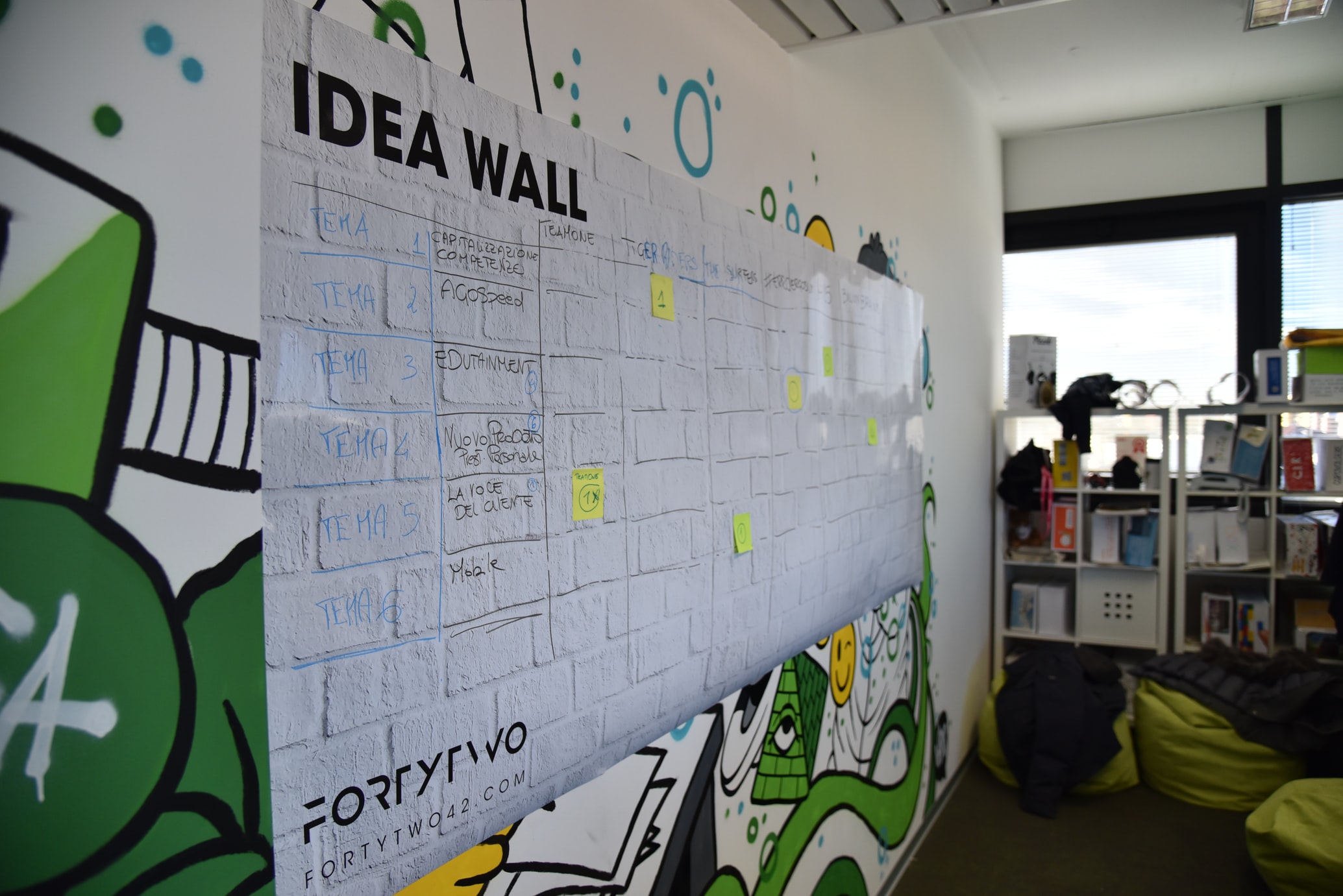
"To experience a breakthrough, abandoning the old and comfortable ways of doing things is often necessary. Sticking to familiar territory is safe, but letting go of the status quo and embracing change is difficult. However, to progress in running and life, one must adopt new and better ways of doing things and be willing to take smart risks for improvement.
Image Credit: Pixabay
Connecting Athletic Skills To Important Life Skills
As a coach, one of my main objectives is to assist students and their parents in understanding the correlation between the skills acquired through running, track, and field and how these skills can be beneficial in life, including their future careers.
Our sports programs prioritize personal development over competition, aiming to equip our students with skills for life beyond high school.
In 2024, I am working to take this goal to a new level.
Lessons Learned That Lasted A Lifetime
Before retiring, I led innovative projects to break away from the status quo.
Throughout my career, I have focused on improving existing systems and building new ones to serve others better.
We always aim to enhance our customer experience through positive, life-giving change.
There is a significant difference between the tasks of maintaining something versus creating something new. The skills required for innovation are different from those needed for maintenance. It's essential to learn both skill sets. However, I focused my career on innovation rather than maintenance for personal reasons.
Creating first-ever projects that helped others in new ways was rewarding on many levels. Challenging the status quo was never dull or easy, but it was meaningful and fired me up most days.
Said differently, seeking improved methods for performing tasks and activities gave my projects a clear vision, purpose, and drive throughout my career. Sometimes, I would add big stretch goals to my projects to help others in transformative ways.
How Project My Running Impacted My Career
The profound impact that running had on my life inspired me to break barriers in my profession. With unwavering determination and the invaluable lessons I learned from pushing myself to new limits from good coaches came a quiet confidence to do the same in my professional life.
After my running career ended, the lessons I learned served as the foundation for several breakthrough moments.
Running taught me how to mentally and physically break long-standing personal and team barriers. Always looking for a better way to reach running or track goals was a game-changer on many levels.
Running taught me how to continuously take ownership of and improve my performance, allowing me to challenge the status quo.
Learning to assess oneself honestly and transparently and identify areas for improvement fosters positive change. Running instills humility and teaches us to be adaptable when things don't go according to plan. Nobody gets everything right all the time. What truly matters is how we pick ourselves up after we fall.
As a young adult, when I was first exposed to formal project management, quality improvement methods, strategic planning, and innovation, I found that many of these skills resonated with me at a personal level. This was because I had learned the importance of these skills informally through my experience as a runner seeking improvement.
My running background helped me step up and lead complex projects early in my career. This was mainly due to my training in both the physical and mental aspects of running. Through years of participating in cross-country and track and field, I developed a strong belief and confidence in the gifts God gave me, which helped me take up challenging tasks.
In other words, the running lessons prepared me to overcome workplace barriers with the right mindset.
The Value Of Teaching How To Change The Status Quo
Innovation and breakthrough projects in the workplace and other areas require the same mental tenacity I learned through championship running and track and field.
I do my best to prioritize attaining personal bests and break team barriers in youth running and track and field. This mindset and attitude fosters innovation and helps break personal and workplace barriers later in life.
Our teams have been blessed with many firsts, including all-time personal bests, first league championships, first state championships, and first school academic sports championships. All this is done knowing every accomplishment should have a purpose greater than self and serve the Lord and others somehow.
Breaking through existing barriers is intentional and, if done right, serves others in various ways for years to come. Someone needs to break the first barrier, so others see what's possible.
When you break a significant personal or team barrier, you change the status quo and help others do the same by your example.
In other words, things improve, and you and your team rise to new heights. The more significant the personal or team barrier you break, the better, I think, most of the time.
I do my best to set high personal and team standards in our cross-country and track and field each year for the short and long-term growth of those involved.
By going after high-performance standards and goals in a fun, encouraging, and faith-filled environment, you learn by doing, reinforcing the great lessons of excellence in the classroom in practical, hands-on ways.
Going for a significant personal best based on your ability level or going for a championship season teaches skills that are different from taking a recreational approach to the sport.
When you give it your all and leave it on the line personally and with a strong team, you learn more in-depth things about yourself mentally, physically, and spiritually.
The skills acquired by wholeheartedly pursuing a big goal can be transferred to future careers if adequately taught.
The pace of change in our culture is increasing rapidly, primarily due to technological advancements. In most professions, staying ahead of the curve is now essential rather than optional. Learning to innovate and pioneer new ideas has become an integral part of the job.
Becoming a trailblazer early on is a crucial career skill that can give you an advantage in the workplace regarding mindset and abilities. Learning how to go after your God-given potential on an excellent, loving team teaches these skills.
What Fuller Said Decades Ago Is True
Buckminster Fuller, one of the geniuses of the 20th Century, said:
"You never change things by fighting the existing reality. To change something, build a new model that makes the existing model obsolete."
Fuller's words made sense to me as a young man. Learning to break barriers and innovate by creating new models made sense if I wanted a long, meaningful, prosperous career.
Innovation requires breaking barriers to move beyond the status quo. Innovation also requires thinking differently from the crowd about how to solve long-standing problems.
Innovation is a mindset of believing all things are possible, there is always a better way, and you will find a new way with the help of your team and, more importantly, through faith in our Lord. There is always a better way mindset always stays in style.
Teaching young people that anything is possible within the natural laws and then breaking a long-standing personal or team barrier helps to reinforce their belief in their innate abilities, sometimes for a lifetime. Something exceptional occurs during hands-on learning through sports like running and track and field.
If you are the first to accomplish something or break a long-standing barrier, much confidence, skills, and personal satisfaction "are gained" as long as humility and a desire to improve continually are maintained. In other words, we can't rest on our laurels or think we have it made or know it all because we don't.
One Young Man's Perspective Of Life Lessons Learned
The bottom line is that placing yourself in new, demanding, and challenging situations when you are young teaches valuable lessons for life.
Perhaps one of our former athletes and Air Force Academy graduate Joe Oczkewicz in aeronautical engineering, said it best:
“My favorite memory in cross-country and track and field is spending time with my teammates at state getting ready to compete. This is the highest level. This is where I learn the most about myself and how to succeed. I have been lucky to run with great athletes committed to exceeding expectations. You learn valuable running and life skills from state championships”.
Joe will now attend Harvard's Kennedy School of Government for graduate studies, followed by pilot training. Moreover, Joe successfully completed his first half Ironman recently!
So, the next time you are challenged to break a significant personal or team barrier, think about the greater long-term purpose of breaking the barrier.
Learning how to break barriers in your races and events while you are young helps give you the right mindset for innovation and barrier-breaking in college and the workplace of tomorrow.
Become a catalyst for personal and team growth, transforming lives now and in the future.
Below are some specific examples of how we approach breaking barriers in our programs.
Blessings,
Coach Weber
Philippians 4:13

Starting with an "anything is possible" mindset is key to breaking long-standing barriers. Once a barrier is broken, such as winning a state championship, it opens up new possibilities for even greater improvements.
When we break barriers, we pave the way for others to follow. Our actions inspire those around us to believe in themselves and their ability to achieve greatness. Let us lead by example and show the world what is possible when we dare to dream and take bold action.
Primary Insight: Breaking long-standing personal and team barriers benefits you in multiple ways. More importantly, it helps those around you believe in their God-given abilities and do things they never thought possible.

Breaking through challenging barriers drives change for you and others. Just like the Bible says, "Where there is no vision, the people perish."
When you pursue a significant personal best or aim for something like a state championship, you not only learn to work hard, but you also become motivated to attempt new things and innovate throughout your journey. This helps you discover better methods of achieving your goals.
Having a solid vision is the first step of making a breakthrough and going where other teams have never gone before.
Primary Insight: Create a strong vision with a clear "why" for your project or activity. A solid and worthwhile vision drives you forward during tough times and unites your team as you work towards a common goal.
The first moon mission was an excellent example of the power of a strong and compelling mission and vision. It was one of the most remarkable projects in US history, where individuals reported their highest levels of work satisfaction and performance. A robust vision is essential for breakthroughs and innovation, and it can make all the difference in winning the race, be it a running race or achieving something as significant as landing someone on the moon.

After a significant race, we circle to review what happened that day.
At the start of the meeting, each person, including the coach, shares one thing that went well in the previous race. After everyone had a chance to speak, we went around the circle and stated one thing we could improve for the next race.
Each team member is encouraged to suggest ways to improve individual or team performance. Accountability is shared, and mistakes are seen as opportunities for growth, not punishment.
I attribute part of the success of our girl's team winning the state championship in their second year to this simple strategy. One meeting after a challenging race helped turn our season around. We went from losing to the defending state champions by 99 points early in the season to winning the state championship by a few points.
Primary Insight: Breakthroughs can happen if you actively listen to your team and the people who do the work daily. Instead of blaming others, focusing on fixing the problem is essential. Openly discuss with your team how to improve without pointing fingers. I particularly like this definition of mistakes: "Mistakes are just gentle taps on the shoulder telling us we don't know everything yet." Be kind to people and direct with the issues that require change.
Photo credit: Daria Nepriakhina

Every Great Barrier-Breaking Moment Starts With A Simple Idea To Improve Some Aspect Of Life.
Don't reject ideas outright without giving them a chance to be heard. Take the time to actively listen and discuss ideas with your team before dismissing them. It's important to consider that combining ideas from different team members can lead to a breakthrough solution. If you shut down an idea too early, you might miss out on the best ideas to help you achieve your vision and goals.